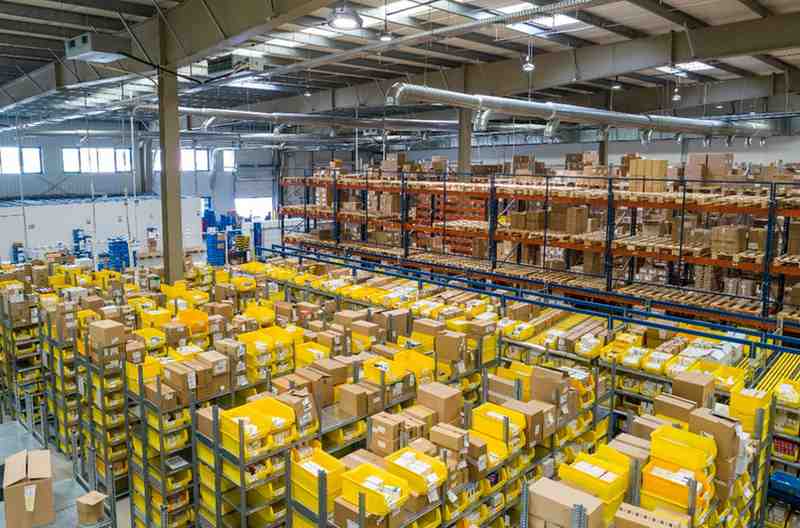Warehouse Job Hire: What You Need to Know Before Applying
With the rise of e-commerce, logistics, and fast delivery demands, warehouse jobs are more essential—and more available—than ever. Whether you’re looking for your first job, a career change, or a side hustle, warehouse job hire offers entry points that don’t always require a degree or prior experience.
But before you send out applications, it’s worth understanding the types of roles available, how hiring works, and what to expect on the job. This guide breaks down the pros, cons, and practical steps to landing the right warehouse position.
Why Warehousing Is a Growing Industry
The explosion of companies like Amazon, Walmart, FedEx, and Target’s online operations has transformed the warehousing industry. Here’s why it’s expanding:
- E-commerce Boom: Online retail is driving demand for faster and more frequent order fulfillment.
- Last-Mile Logistics: Warehouses are being set up closer to urban centers to reduce delivery times.
- 24/7 Operations: Many warehouses now run on multiple shifts, offering more job flexibility.
As a result, warehouse job hiring has become year-round and often urgent, making it a great option if you’re looking to get hired fast.
Types of Warehouse Jobs Available
Warehouse jobs aren’t all the same. Depending on your skills and physical ability, you’ll find a range of positions, including:
- Picker/Packer: Locating items and preparing them for shipping.
- Shipping/Receiving Clerk: Managing incoming and outgoing deliveries.
- Forklift Operator: Requires certification; handles loading/unloading heavy pallets.
- Inventory Control Specialist: Tracks stock levels and updates records.
- Warehouse Supervisor: Manages teams and coordinates daily operations.
Many companies offer on-the-job training for entry-level positions, and growth into higher-paying roles is often possible within the first year.
Pros of Warehouse Jobs
- Fast hiring process: Many employers offer walk-in interviews or same-day offers.
- No degree required: Skills are often learned on the job.
- Overtime and shift options: Choose shifts that suit your schedule—day, night, or weekends.
- Physical activity: Great for people who prefer to stay active instead of sitting all day.
- Path to stability: Full-time roles often include benefits, including health insurance and paid time off.
Cons of Warehouse Jobs
- Physically demanding: Long hours of standing, lifting, and repetitive tasks.
- Temperature conditions: Some warehouses aren’t climate-controlled, which can be tough in extreme weather.
- Monotony: Tasks can be repetitive, especially in fulfillment centers.
- Injury risk: Without proper safety protocols, strains and sprains are common.
How to Get Hired Quickly
Warehouse hiring can be competitive during certain seasons, like the holiday rush or sales periods. Here’s how to stand out:
- Apply through staffing agencies: Many companies hire through temp-to-hire programs. Staffing firms like Adecco, Manpower, or Randstad often get first access to open roles.
- Certify in forklift operation: Getting certified can bump your pay and widen your options.
- Show up early and prepared: For walk-in interviews, dress neatly, bring ID and documents, and ask questions.
- Highlight your stamina and reliability: Employers want workers who show up on time and can handle physical work.
Comparison: Warehouse Jobs vs. Retail Jobs
| Aspect | Warehouse Job | Retail Job |
|---|---|---|
| Interaction Level | Low (mostly team-based, minimal customer interaction) | High (constant customer-facing duties) |
| Environment | Industrial/physical | Climate-controlled, but often busy |
| Pay Rate | Often higher due to shift work and overtime | Lower, with few overtime opportunities |
| Career Growth | Fast track to supervisor roles | Slower unless working in management |
FAQs About Warehouse Hiring
Do I need experience to get hired? No. Most entry-level roles require only physical ability and a willingness to learn. Training is often provided. What kind of shifts do warehouses offer? Common shifts include early morning, evening, overnight, and weekend options. Some facilities operate 24/7. What is the average warehouse pay? Hourly pay varies by region, but generally ranges from $15–$22/hour. Forklift operators and supervisors earn more. Can I move up in the company? Yes. Many warehouse managers started as entry-level workers. Reliability and productivity often lead to promotion. Are these jobs safe? Warehouses must follow OSHA guidelines, but risks remain. Look for companies with strong safety training and low injury rates.
Real Advice from Warehouse Workers
“I started as a picker at a fulfillment center with no experience. After six months, I was promoted to lead. If you’re consistent and fast, there’s room to grow.” – Luis, 28, Florida
“Night shifts are tough but quiet. I prefer working when it’s cooler and fewer people are around.” – Tina, 35, California
Tips Before You Apply
- Get proper footwear: Steel-toe boots are often required and make a huge difference in comfort.
- Read job descriptions carefully: Not all warehouse jobs are the same—some may involve heavy lifting, while others are more clerical.
- Stay hydrated: Long shifts in non-climate-controlled environments can be draining.
- Track your hours: Use a time tracking app or notebook, especially during peak seasons.
Final Thoughts
Warehouse jobs offer immediate income opportunities, flexibility, and a clear path to advancement—without the need for a college degree. Whether you’re looking for seasonal work or a stepping stone into logistics and operations, the warehouse industry is worth serious consideration. Just be sure to weigh the physical demands and work culture before signing on.
For those who can handle the pace, warehouse jobs can be both financially and personally rewarding. With strong demand and a relatively easy hiring process, you could land your next job faster than you think.
